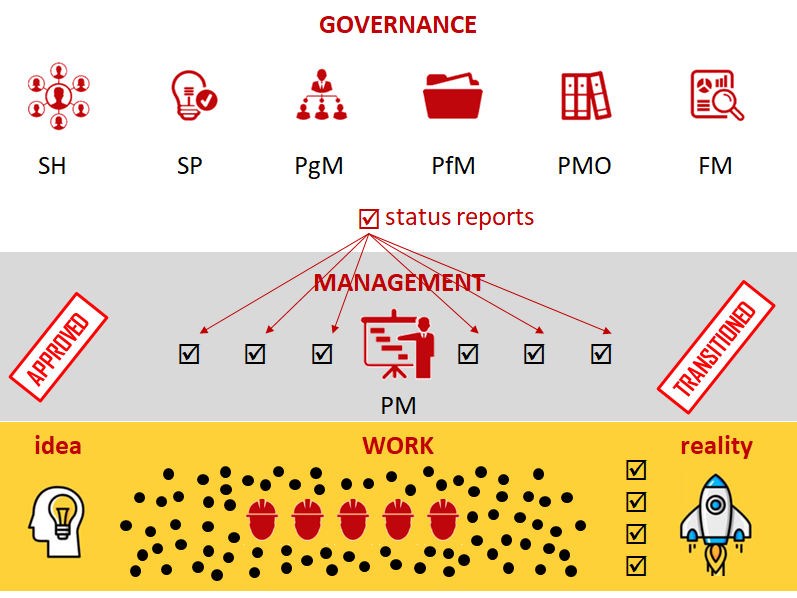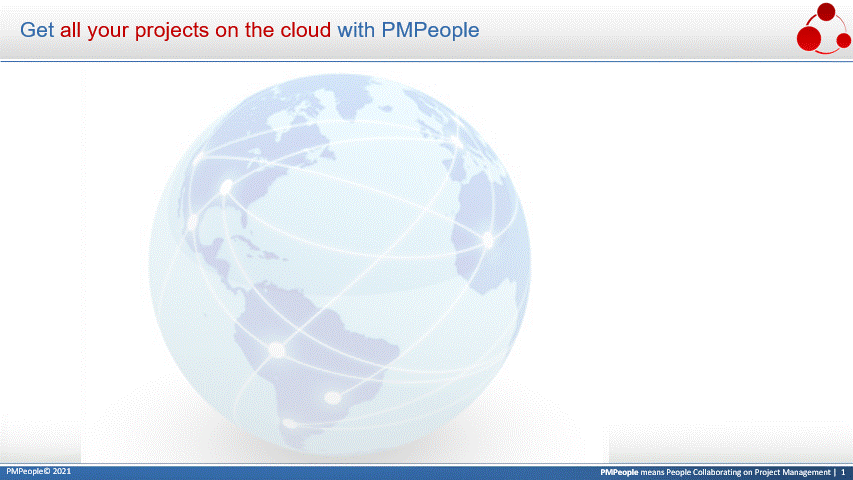Startups need good ideas, but they can only succeed if they are good in execution, while turning ideas into reality. This means they need to manage projects professionally, avoiding bureaucracy, value driven, working as self-organizing teams of people collaborating proactively. Thanks to technology available nowadays, these people can access their projects in the cloud, using specific roles.
The result of a project by a self-organized team is uncertain, though: it can be as spectacular as Apple, or as disappointing as the 70-90% of start-ups that do not exceed their third year of life. There are effective methodological frameworks to manage self-organizing teams, such as Lean startup, Scrum and holacracy. However, since most tasks require highly demanding technical expertise, only a little effort is devoted to management.
When a startup overcomes seed phase and get proper funding, there are more initiatives and more people whose engagement is essential to turn ideas into reality. Mature startups usually execute many projects at the same time, under many strategic initiatives. There is a need to “govern” all projects in their different phases, and other people come to control/monitor projects performance –i.e. they are in governance, they don’t do technical tasks.
There is a new layer between the governance and the technical group, focused on project management. Here the project manager reports how the project is doing, in periodic review meetings to anticipate problems, measuring performance and taking corrective actions to get the project back on track before it’s too late.

Traditionally, project monitoring was performed at face-to-face meetings, by reviewing documents previously submitted by the project manager. Today, technology can facilitate project management online. On the other hand, project work information for monitoring can be progressively elaborated by the management team, as the relevant events occur, facilitating the engagement of an unlimited number of stakeholders, who can instantly check the status of the projects they monitor, making comments, giving feedback, requesting changes, etc.
Nowadays, there are many good freemium tools to work in teams, using the cloud to have all artifacts: virtual meetings, files, messages, and tasks.
Startups also need their projects in the cloud. People involved need to share their concerns and knowledge in real time, collaborating on projects professionally, with project status reports, changes, risks, milestones, baselines, etc.

PMPeople is the tool for the project economy. It is aimed to unify professional project management by these differential points:
- Designed by and for professional project managers, following professional project management standards.
- Online productivity –less meetings, less documents, less workflows– through distributed collaboration among 12 specialized roles: Organization Owner, 6 roles on demand management and 5 roles on supply management.
- Freemium product –unlimited time, unlimited users– usable via web and mobile application.
Start using PMPeople for free, for unlimited time and for any number of users. In premium organizations, only managers have a cost. Several roles –stakeholders, team members, sponsors and resource managers– are always free. You can increase or decrease your premium seats according to the organization actual needs. Premium organizations have access to our interactive support through Slack. Our servers are located in EU. This software can also be hosted on customer premises.
Jose Barato
Related posts
Categories
- Business (16)
- Demand Management Roles (14)
- Frequently Asked Questions (7)
- Guide (26)
- People (23)
- Assignments (2)
- Feedback (2)
- Project Team (3)
- Tracking Time And Expenses (2)
- Process (9)
- Closing (2)
- Executing And Controlling (2)
- Planning (1)
- Project Management (67)
- Management Frameworks (18)
- Organization Owner (OO) (3)
- Project Economy (54)
- Tools (19)
- Supply Management Roles (5)
- Training (6)
- Uncategorized (1)





